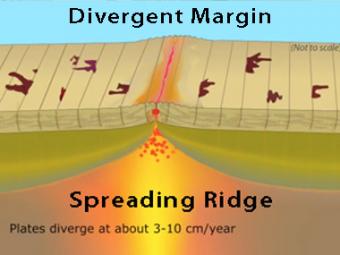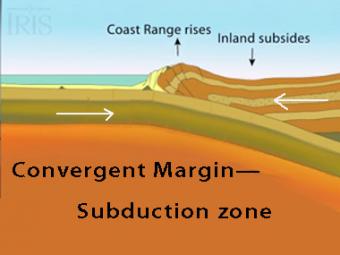1min 10s Novice Spanish Chinese

How do mid-ocean ridges form new crust?
Spreading mid-ocean ridges form the longest mountain ranges in the world. New oceanic crust is created at this boundary when basalt magma, formed in the mantle, rises into fractures in the crust and solidifies. Spreading ridges are high elevation because the young oceanic plate at the ridge crest is hot and less dense than the older, colder and more dense plate on the flanks of the ridge. As the plates move away from the boundary, they thicken because underlying mantle rocks cool and add to the bottom of the plate.
CLOSED CAPTIONING: A .srt file is included with the download. Use appropriate media player to utilize captioning.

The subduction zone iswhere two tectonic (lithospheric) plates come together, one subducting (diving) beneath the other. The plates are locked together and periodically overcome the friction causing the leading edge of the overlying plate to surge back, lifting a wall of water producting a tsunami.
We encourage the reuse and dissemination of the material on this site as long as attribution is retained. To this end the material on this site, unless otherwise noted, is offered under Creative Commons Attribution (CC BY 4.0) license